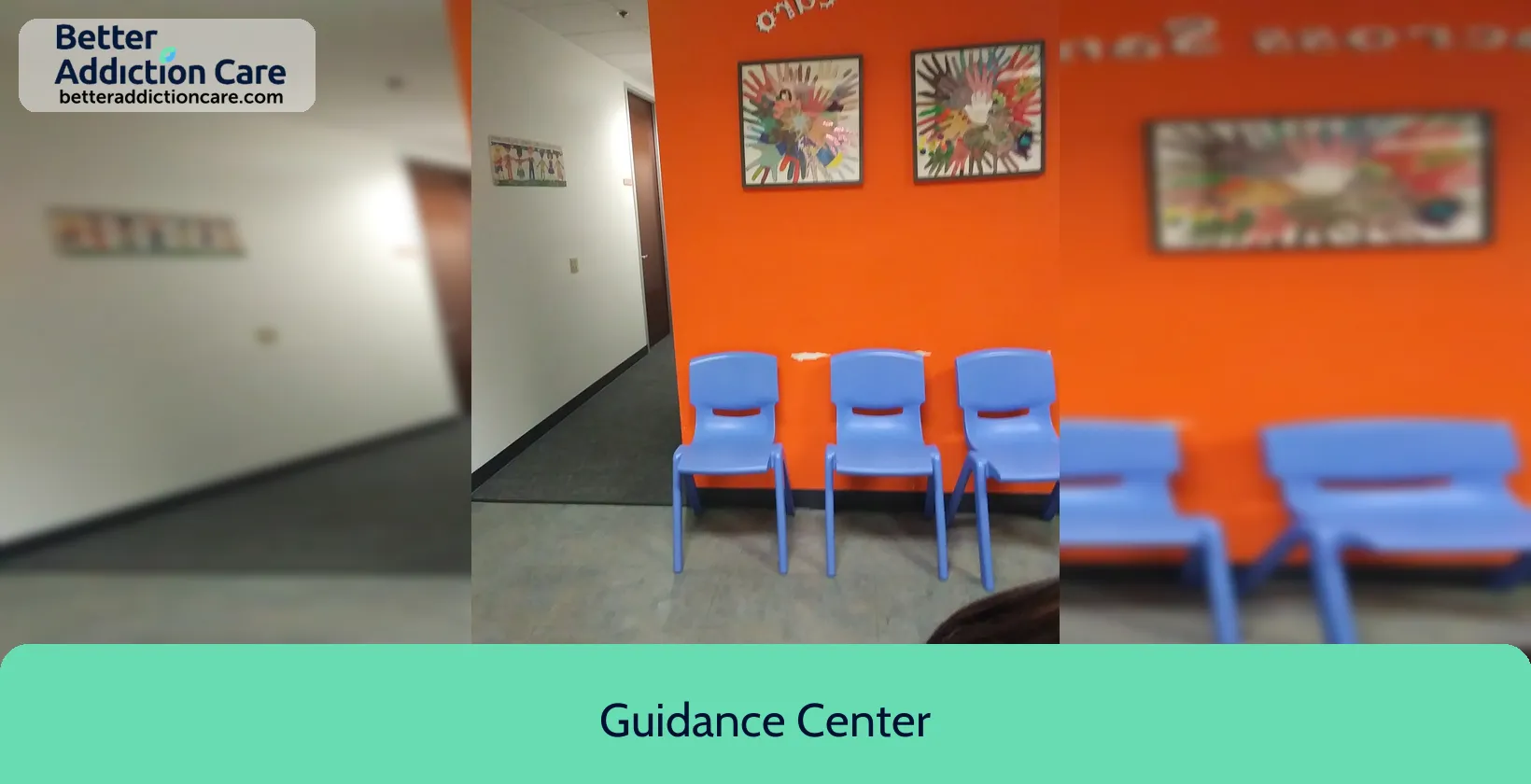Guidance Center - Lynwood Clinic

Overview
Guidance Center - Lynwood Clinic is a mental health treatment center for people seeking treatment near Los Angeles County. As part of their treatment modalities for recovery, Guidance Center - Lynwood Clinic provides family counseling, individual psychotherapy, and cognitive behavioral therapy during treatment. Guidance Center - Lynwood Clinic is located in Compton, California, accepting county or local government funds for treatment.
Guidance Center - Lynwood Clinic at a Glance
Payment Options
- County or local government funds
- Medicaid
- Cash or self-payment
Assessments
- Comprehensive mental health assessment
Age Groups
- Children/adolescents
Operation
- Private for-profit organization
Highlights About Guidance Center - Lynwood Clinic
6.65/10
With an overall rating of 6.65/10, this facility has following balanced range of services. Alcohol Rehabilitation: 8.00/10, Drug Rehab and Detox: 6.00/10, Insurance and Payments: 6.00/10, Treatment Options: 6.61/10.-
Alcohol Rehabilitation 8.00
-
Treatment Options 6.61
-
Drug Rehab and Detox 6.00
-
Insurance and Payments 6.00
Treatment At Guidance Center - Lynwood Clinic
Treatment Conditions
- Mental health treatment
Care Levels
- Outpatient
Treatment Modalities
- Family counseling
- Individual psychotherapy
- Cognitive Behavioral Therapy
- Group counseling
- Marital/couples counseling
Ancillary Services
Languages
- Spanish
Special Programs
- Clients who have experienced trauma
- Persons 18 and older with serious mental illness (SMI)

Additional Locations
Contact Information
Read our Most Recent Article About Drug Addiction
DISCLAIMER: The facility name, logo and brand are the property and registered trademarks of Guidance Center - Lynwood Clinic, and are being used for identification and informational purposes only. Use of these names, logos and brands shall not imply endorsement. BetterAddictionCare.com is not affiliated with or sponsored by Guidance Center - Lynwood Clinic.









